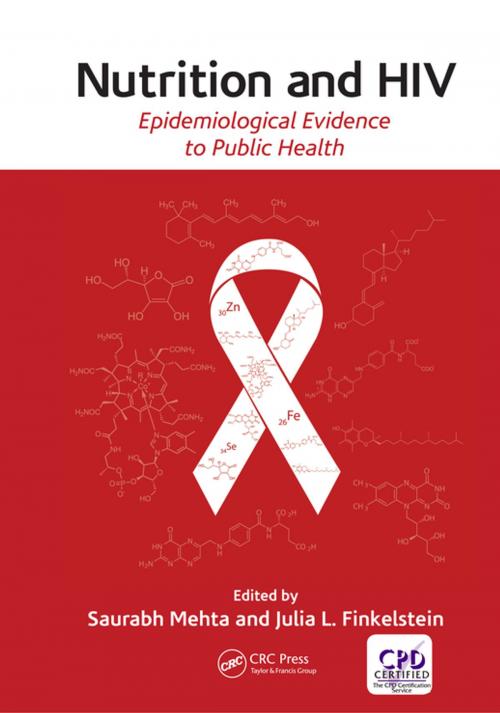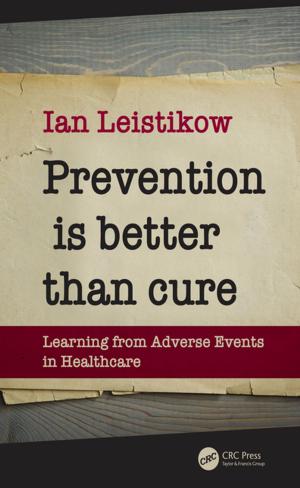Nutrition and HIV
Epidemiological Evidence to Public Health
Nonfiction, Health & Well Being, Medical, Ailments & Diseases, Infectious Diseases, Epidemiology, Reference, Public Health, Patient Care, Nutrition| Author: | Saurabh Mehta, Julia Finkelstein | ISBN: | 9781351058179 |
| Publisher: | CRC Press | Publication: | May 15, 2018 |
| Imprint: | CRC Press | Language: | English |
| Author: | Saurabh Mehta, Julia Finkelstein |
| ISBN: | 9781351058179 |
| Publisher: | CRC Press |
| Publication: | May 15, 2018 |
| Imprint: | CRC Press |
| Language: | English |
The world continues to lose more than a million lives each year to the HIV epidemic, and nearly two million individuals were infected with HIV in 2017 alone. The new Sustainable Development Goals, adopted by countries of the United Nations in September 2015, include a commitment to end the AIDS epidemic by 2030. Considerable emphasis on prevention of new infections and treatment of those living with HIV will be needed to make this goal achievable. With nearly 37 million people now living with HIV, it is a communicable disease that behaves like a noncommunicable disease.
Nutritional management is integral to comprehensive HIV care and treatment. Improved nutritional status and weight gain can increase recovery and strength of individuals living with HIV/AIDS, improve dietary diversity and caloric intake, and improve quality of life. This book highlights evidence-based research linking nutrition and HIV and identifies research gaps to inform the development of guidelines and policies for the United Nations’ Sustainable Development Goals.
A comprehensive approach that includes nutritional interventions is likely to maximize the benefit of antiretroviral therapy in preventing HIV disease progression and other adverse outcomes in HIV-infected men and women. Modification of nutritional status has been shown to enhance the quality of life of those suffering HIV/AIDS, both physically in terms of improved body mass index and immunological markers, and psychologically, by improving symptoms of depression. While the primary focus for those infected should remain on antiretroviral treatment and increasing its availability and coverage, improvement of nutritional status plays a complementary role in the management of HIV infection.
The world continues to lose more than a million lives each year to the HIV epidemic, and nearly two million individuals were infected with HIV in 2017 alone. The new Sustainable Development Goals, adopted by countries of the United Nations in September 2015, include a commitment to end the AIDS epidemic by 2030. Considerable emphasis on prevention of new infections and treatment of those living with HIV will be needed to make this goal achievable. With nearly 37 million people now living with HIV, it is a communicable disease that behaves like a noncommunicable disease.
Nutritional management is integral to comprehensive HIV care and treatment. Improved nutritional status and weight gain can increase recovery and strength of individuals living with HIV/AIDS, improve dietary diversity and caloric intake, and improve quality of life. This book highlights evidence-based research linking nutrition and HIV and identifies research gaps to inform the development of guidelines and policies for the United Nations’ Sustainable Development Goals.
A comprehensive approach that includes nutritional interventions is likely to maximize the benefit of antiretroviral therapy in preventing HIV disease progression and other adverse outcomes in HIV-infected men and women. Modification of nutritional status has been shown to enhance the quality of life of those suffering HIV/AIDS, both physically in terms of improved body mass index and immunological markers, and psychologically, by improving symptoms of depression. While the primary focus for those infected should remain on antiretroviral treatment and increasing its availability and coverage, improvement of nutritional status plays a complementary role in the management of HIV infection.















